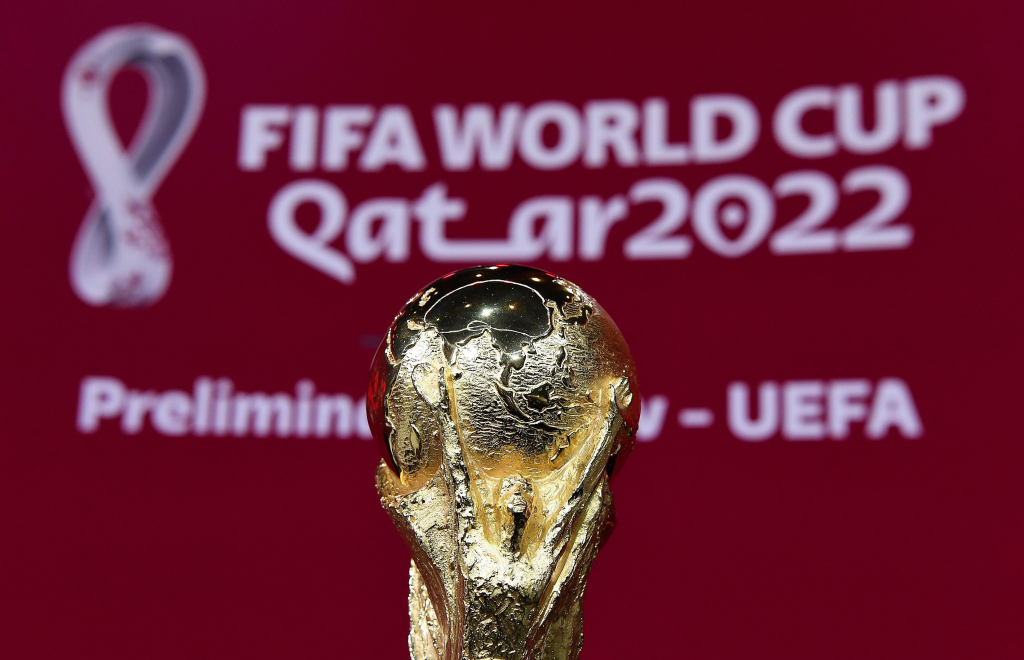The Premier League season came to an end on Sunday, with Everton staying up at the cost of Leicester and Leeds.
It was a season filled with exciting contests for the championship, European spots, and relegation. But it was also an odd season.
After a year of Covid-era football with seasons finishing in July – and empty stadiums – we should be used to anything.
But we did get another break this season for a winter World Cup, and that was just the beginning.
Records of managerial changes

This season, 39 people managed a Premier League game.
This was a season of extraordinary managerial changes, with a total of 14 changes. Chelsea, Leeds, and Southampton all fired two managers.
This season, 39 people took command of at least one Premier League game, including caretakers and interims, several of whom were cut and changed.
Only one manager, Graham Potter, who is moving from Brighton to Chelsea, was given the option. And he was terminated by Chelsea after less than seven months, making him two of the 14 moves.
Only nine of the 20 Premier League teams finished the season with the same manager.
Leicester, Leeds, and Southampton were all relegated with short-term managers whose contracts had expired at the end of the season.

Chelsea is poised to appoint Mauricio Pochettino to replace Frank Lampard, who took up as Everton manager earlier this season. Crystal Palace’s Roy Hodgson and Tottenham’s Ryan Mason are both out of contract.
Chelsea’s 2022-23 season will be remembered fondly, but not for the right reasons.
For the first season since 1995-96, the Blues ended in the bottom half (12th), but that is only half the tale.
Since taking over as owner at the end of last season, Todd Boehly has spent £583 million on players and has had four different managers (including interims) this season.
The £300 million+ spent in January and the £270 million spent in the summer are two of the three largest transfer window spends in history, alongside Real Madrid’s £292 million spent in the summer of 2019.
Boehly fired Champions League-winning manager Thomas Tuchel before hiring Potter on a five-year contract and paid him and his coaching staff £21 million in compensation.
Potter was fired seven months later, and his deputy, Bruno Saltor, took over as interim leader. He was granted one game before Boehly brought back Lampard – the man who had been ousted a few years prior, prompting Tuchel’s entrance. They only won one of his 11 games.
Nottingham Forest’s unconventional approach has proven effective.

Chelsea signed for quality (in theory, if not in practice), whereas Nottingham Forest signed for quantity.
After many of the 2021-22 Championship promotion squad had left, they signed 29 players over the course of the season.
Even transfer deadlines did not deter them, as they signed free agents in September and February.
It was surprising that Steve Cooper was not one of the 14 managerial changes. When Forest was bottom after eight games, he was widely expected to be fired, but instead, he was given a new contract.
In April, he was rumoured to be on the verge of resigning, but Forest issued a club statement stating that he would remain in charge.
It worked in the end, as Forest remained atop the table, despite all four teams below them changing managers.
READ ALSO: Bukayo Saka signs new contract until 2027
Errors with VAR

The governing authority of referees PGMOL spent far too much time apologizing for video assistant referee errors.
It apologized to Brighton and Arsenal on separate Saturdays in February. The offside lines were not drawn by the VAR in one case but were drawn by the same player in the other.
PGMOL recognized Newcastle and West Ham had goals against Crystal Palace and Chelsea, respectively, wrongfully disallowed by the VAR for fouls in September, on the same weekend.
There aren’t always apologies for mistakes, and they aren’t always public, so it’s impossible to say how common it is.
But we do know that Brighton has received three apologies.
There were 10 wrong VAR interventions, 19 missing interventions, and 30 VAR faults for on-field offenses after 30 rounds of play. During that time, there were 83 correct interventions.
Not to mention Liverpool player Andy Robertson claiming an assistant referee elbowed him and Reds manager Jurgen Klopp hurting his hamstring after yelling at a fourth official.
A dramatic relegation battle

This season, we all – well, not the teams involved – witnessed a tense relegation battle.
With 10 or 11 games remaining on March 31, the bottom nine clubs were separated by only four points. Crystal Palace finished 12th with 27 points. Southampton finished last with 23 points.
Teams eventually began to distance themselves – and Southampton remained where they were – but it was still the first season since 2017-18 that no team was relegated after 35 games.
After the end of March, two of the teams down there changed managers, and both went down. Leicester hired Dean Smith, while Leeds hired Sam Allardyce and Karl Robinson, who was said to be on lucrative terms if they stayed up. Leeds’ funds were safe.
By the penultimate day, it was a race between Everton, Leicester, and Leeds for the remaining two relegation spots, with Abdoulaye Doucoure scoring the only goal against Bournemouth.
Mid-season break

Because the World Cup in Qatar took place during Europe’s winter, clubs were without Premier League games for nearly six weeks, from mid-November to December 26.
Some teams granted non-planet Cup players anywhere from a few days to a couple of weeks off, while others travelled to the other side of the planet.
Some of the venues included the United Arab Emirates, Australia, Saudi Arabia, Spain, and Portugal, with approximately half of the Premier League teams playing friendly during that time.
Liverpool and Arsenal competed in the Dubai Super Cup, Everton in the Sydney Cup, Crystal Palace hosted Botafogo of Brazil, a few teams faced La Liga clubs, and Fulham met West Ham in a London derby the week before Christmas.
The table looked very different back then, with Arsenal at the top, Chelsea just outside the European places on goal difference, and Wolves at the bottom.
And Cristiano Ronaldo used to play for Manchester United.
The number of World Cup players did not appear to have a negative impact on the second half of the season. Manchester City sent a league-high 16 players to Qatar, and they won the title, but Southampton sent only two players, a league-low, and they finished last.
A competitive title race (till the very end)

For much of the season, it appeared that Arsenal would win their first league title since the ‘Invincibles’ of 2003-04.
Coming into April, Arsenal was eight points ahead of City, despite having played one more game. They led the table for 29 games in a row.
However, they experienced the same fate as Liverpool in recent years, failing to maintain City’s unrelenting winning streak in the second half of the season.
Mikel Arteta’s side led for 248 days – the most in English top-flight history – but City won the title with three games to spare.
Since Guardiola took over in 2016, City have taken between 21 and 30 points in their final ten Premier League games, averaging 2.43 points per game.
Since 2015-16, City has been the league’s favourite, with Arsenal starting the season as the 50-1 sixth favourites.
City, the Premier League champions, are now aiming for the Triple Crown. In the next two Saturdays, they meet Manchester United in the FA Cup final and Inter Milan in the Champions League final. If they win both, they will be the second team to do so, following United in 1998-99.

